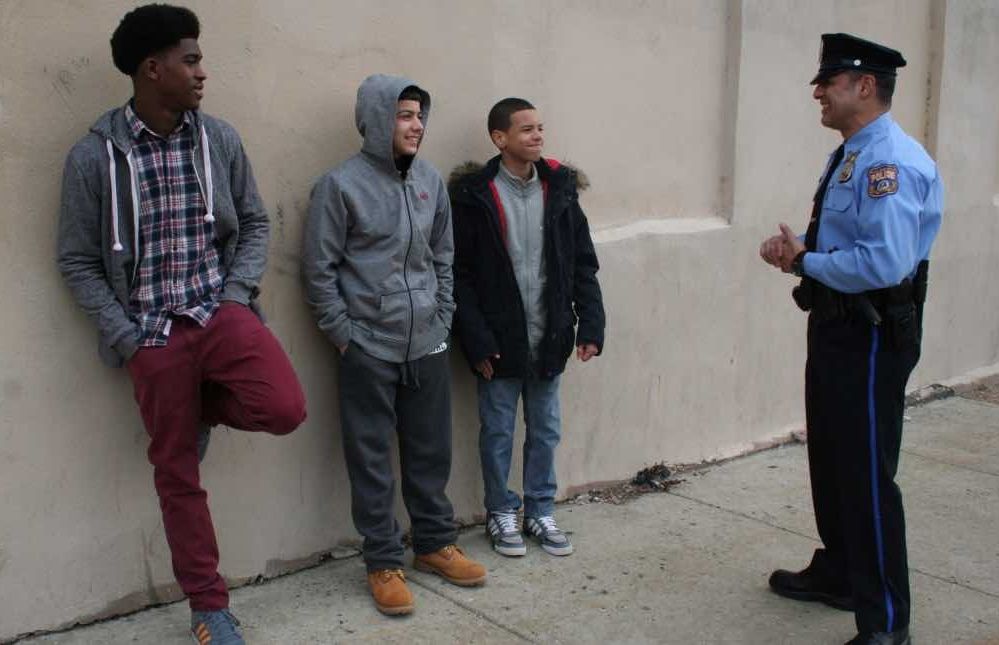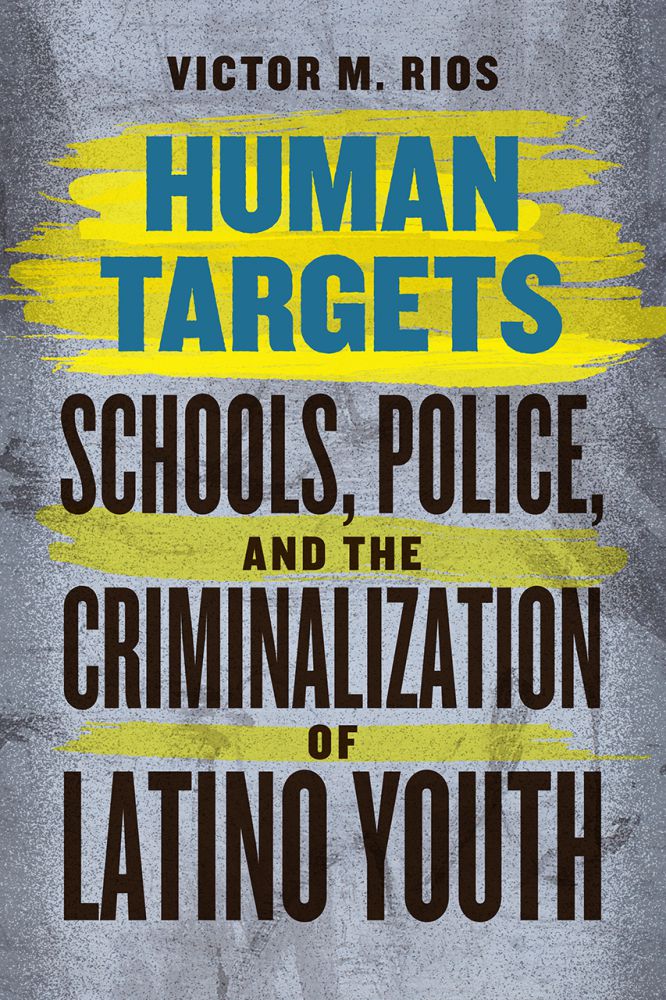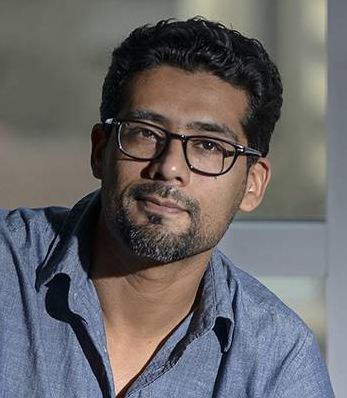
Street Smarts


Victor Rios knows what it’s like to have a target on your back, to be the subject of suspicion and low expectations. He was, after all, a gang member in a tough California neighborhood. At 15 he beat up the wrong guy and narrowly escaped death in a retaliatory drive-by shooting. It was a literal wake-up call, and with the help of a teacher he got a job and the opportunity to build a new life.
Today Rios is a celebrated professor of sociology at UC Santa Barbara who studies the lives of Latino and African American youths to understand how they, too, can succeed despite the pressures of a society that often treats them like criminals. His research led him to author “Human Targets: Schools, Police and the Criminalization of Latino Youth” (University of Chicago Press, 2017).
The groundbreaking book, the product of five years of on-the-street research, examines the way schools and the police focus on the control and punishment of Latino youths rather than treat them as complex individuals worthy of respect. Rios argues that positive interactions with these youths offer the best chance to reach and help them.
“Most human interactions, I would argue, are resources or lead to resources,” Rios said. “They’re either going to make you feel good about yourself or bad about yourself. There’s no in between, there’s no neutral space. When you interact with another human being either you’re going to feel good with that hello or you’re going shake off whatever terse interaction you had. It’s the same with these kids.”
One of Rios’s key insights is that the Latino youths he tracked constantly engage in what he calls “shapeshifting” — adopting a different persona in response to changing circumstances. Much of this happens in what Rios calls “frames” — the cultural and social fabric of their everyday lives.
“We might just think of it as little clouds that surround them,” Rios explained. “And they have little clouds of support systems, and they could be negative or positive. So you’re walking around and you have this giant cloud that surrounds you, and that cloud is essentially saying, ‘This is your opportunity to prove your manhood in a negative way,’ with violence, drug abuse, drug sales, crime.
“And there’s a tiny cloud that never leaves; it’s always there,” he continued. “That tiny cloud says, ‘This is your opportunity to show that you’re an educated individual, that you can contribute to society and community. There’s another way.’ ”
But the institutions that might help, such as the schools and the police, too often operate in a “culture obsessed with control,” Rios said. So when youths get in trouble, act out or struggle, they’re confronted with efforts to punish them — and any chance to help them in that moment is lost.
“They’re having these negative interactions as they navigate school and engage with police, and they just accumulate so their clouds of opportunity to do negative things just keep expanding,” Rios said. “Or their cultural frames lead them into a direction where their behaviors, values and norms are shaped. But these individuals aren’t born with one value system, which is, ‘I’m a bad kid that’s in a criminal gang and therefore I’m always going to commit crimes.’ ”
The way to break this cycle of misbehavior and punishment, Rios found, looks an awful lot like the help he received at 15. A teacher treated him like an individual who needed help. He, in turn, listened to her and the little cloud that told him he could be more than a gang member. The authorities — schools and police — need to get away from their one-size-fits-all approach and look for opportunities to have positive interactions with Latino youths, he said.
“What I’m trying to argue is that we should change the way we treat young people placed at-risk,” Rios said. “This a radically inefficient system for dealing with what we consider troubled kids. The examples are out there. It’s just that when we’re surveying poverty in poor populations we implement the inefficient system of serving the population.
“The book is really trying to show how when we go from targeting people as literally targets to be controlled, punished and eliminated to treating them with more emotional support, more positive interactions, then we start to see outcomes,” he continued. “Not every single one of them is going to change, but you’ll definitely have a more efficient system.”
Professional honor
For Rios’s work with and writing about Latino and African American youths, the American Sociological Association (ASA) has honoredhim with the 2017 Award for Public Understanding of Sociology. This major award is given to an ASA member “who has made exemplary contributions to advance the public understanding of sociology, sociological research and scholarship among the general public.”
“I am so very pleased that my colleague Professor Rios has been honored with this professional recognition by the American Sociological Association,” said Beth Schneider, professor and chair of UCSB’s Department of Sociology. “In winning this prestigious award he joins a list of outstanding sociologists who have done exemplary research and showcased that work and its implications for public audiences.
“Dr. Rios has shared his findings and insights with a wide range of audiences, ranging from students in junior and senior high schools and colleges throughout California, to professionals at the Department of Health and Human Services, to academics across the country,” Schneider continued. “He is also noted for his TEDx talk, ‘Teach to the Heart and the Mind Will Follow’, and his TED Talk, ‘Help for Students the Education System Ignores’ which has garnered over 1 million views. At all these sites, and in the trade versions of his academic books, Professor Rios has expanded their understanding of the complicated and contradictory lives of black and Latino boys and the deleterious consequences of the criminal justice system on youth of color. The honor is remarkably well-timed and exceptionally well-deserved.”
Rios said the award is a reflection of the excellence of UCSB’s sociology program. “It represents the spirit of the sociology department at UC Santa Barbara because we’re very engaged with the public,” he said. “We have people doing documentaries, environmental justice, social movements, gay and lesbian rights, women’s rights.
“If you do a little browsing of the department you’ll see how engaged we are and how we’re known for that in the local and global community,” he continued. “So I’m very proud to be part of UCSB’s sociology department and this award for me, really, speaks not just to me as an individual, but to the spirit of our department.”



